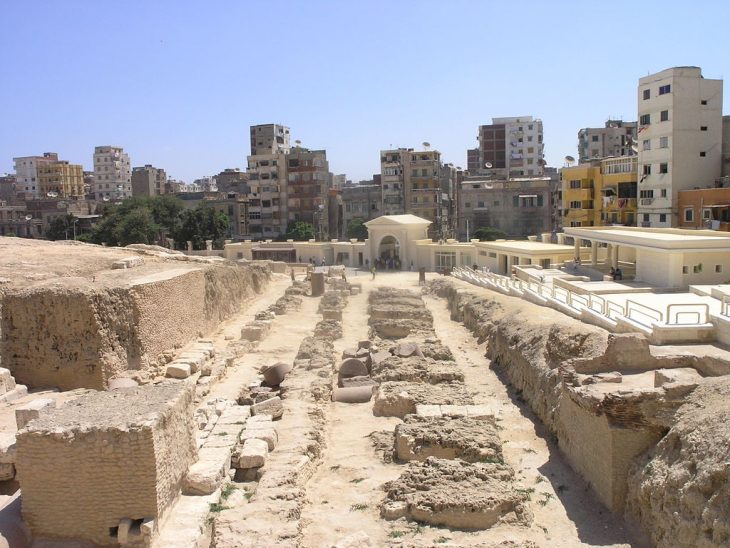
Word of the Day: Consternation
Today’s word of the day, courtesy of Merriam-Webster, is consternation. Consternation is a noun that means “a sudden, alarming amazement or dread that results in utter confusion” (https://www.dictionary.com/browse/consternation) or “A feeling of confusion, helplessness, shock, or dismay” (https://www.yourdictionary.com/consternation). M-W says, “Consternation is a formal word that refers to a strong feeling of surprise or sudden disappointment that causes confusion” (https://www.merriam-webster.com/word-of-the-day).
M-W goes on to say, “If you’ve ever been flummoxed, befuddled, or even fuddled, you know a thing or two about consternation—but perhaps not all of it. Consternation and confusion are not synonymous, though it’s understandable that they are sometimes confused. Consternation refers not to confusion, but to a feeling of amazement or dismay that can lead to confusion, or otherwise hinder or stop someone in their tracks. And much like dismay, consternation is often used in constructions starting with ‘much to,’ as in ‘much to their consternation, their teacher announced a pop quiz as soon as class started.’ People also often ‘express’ or ‘show’ their consternation in various ways, whether with furrowed brow, mouth agog, or assorted mumblings and grumblings—visual and audible clues that they are working out just what to do next after being consternated” (ibid.).
The word entered the English language in the “1610s, from French consternation ‘dismay, confusion,’ from Latin consternationem (nominative consternatio) ‘confusion, dismay,’ noun of state from past-participle stem of consternare ‘overcome, confuse, dismay, perplex, terrify, alarm,’ which is probably related to consternere ‘throw down, prostrate,’ from assimilated form of com-, here perhaps an intensive prefix (see com-), + sternere ‘to spread out, lay down, stretch out’ (from nasalized form of PIE root *stere- ‘to spread’)” (https://www.etymonline.com/search?q=consternation). The website says that consternate arrived in England in the 1650s and also came from Latin, but it is possible that consternate is a backformation from consternation.
According to the On This Day website, on this date in 641, the Muslim army conquered Alexandria and took control of Egypt from the Byzantine Empire.
First, some background. Alexandria was and is a port city in Egypt, the largest city on the Mediterranean Sea and formerly the home to a world-famous library. The city was founded by Alexander the Great after his conquest of Egypt around 331 BC. It grew quickly and became a center for the Hellenic culture that dominated the Mediterranean for centuries. In 47 BC, Caesar besieged Alexandria, but not entirely successfully, but it eventually became part of the Roman Empire.
There were Greeks, Egyptians, and Jews living together in Alexandria. In 38 AD, “disturbances erupted between Jews and Greek citizens of Alexandria during a visit paid by King Agrippa I to Alexandria, principally over the respect paid by the Herodian nation to the Roman emperor, which quickly escalated to open affronts and violence between the two ethnic groups and the desecration of Alexandrian synagogues” (https://en.wikipedia.org/wiki/Alexandria). Agrippa I was also known as Herod II, the same Herod who ruled in Judea when Christ was crucified.
Around 115 AD, the Kitos War, really a rebellion, erupted. It was part of the years of rebellion by Jews against the Roman Empire, and during this particular phase, much of Alexandria was destroyed. In 619, Alexandria fell to the Sassanid Persians, the second Persian Empire, but the Byzantines quickly retook the city just 10 years later (ibid.).
But in 622 AD, Muhammed led his followers from Mecca to Medina, beginning the period of Muhammed’s success as a religious leader. He soon had 10,000 followers, and he gradually converted the bulk of Arabia. And then in 632, he died. What followed was a rapid expansion of Muslim control through conquest, and Alexandria fell.
“Under the rule of the first caliphs, the Rashidun, Muslim armies began assaulting the borders of both Sassanid Persia and the Byzantine Empire” (https://military-history.fandom.com/wiki/Siege_of_Alexandria_(641). Though they had been fighting with each other, the Sassanids and the Byzantines were not prepared for the passion and speed of the Muslim armies. After just a few years, the Muslims looked to expand into Byzantine Africa, which included Alexandria.
Amr ibn Al-Asi led the Muslim army, which easily outnumbered the Byzantine army. And in 641, the Muslims first besieged and then captured the rich city of Alexandria.
The saddest part of this story is that the great Library of Alexandria was destroyed. From my 21st-century perspective, I really do not understand the desire to conquer other people, to take their stuff by force, or to force them to accept a religion. I’m fairly certain that faced with such force I would feel consternation.
Today’s image is “The Serapeum at Alexandria. The building was used by the Library of Alexandria for extra storage of parchment scrolls after it ran out of space. The area is now a part of an archeological excavation. Credit: Daniel Mayer /CC BY-SA 4.0” (https://greekreporter.com/2023/07/05/library-of-alexandria/).